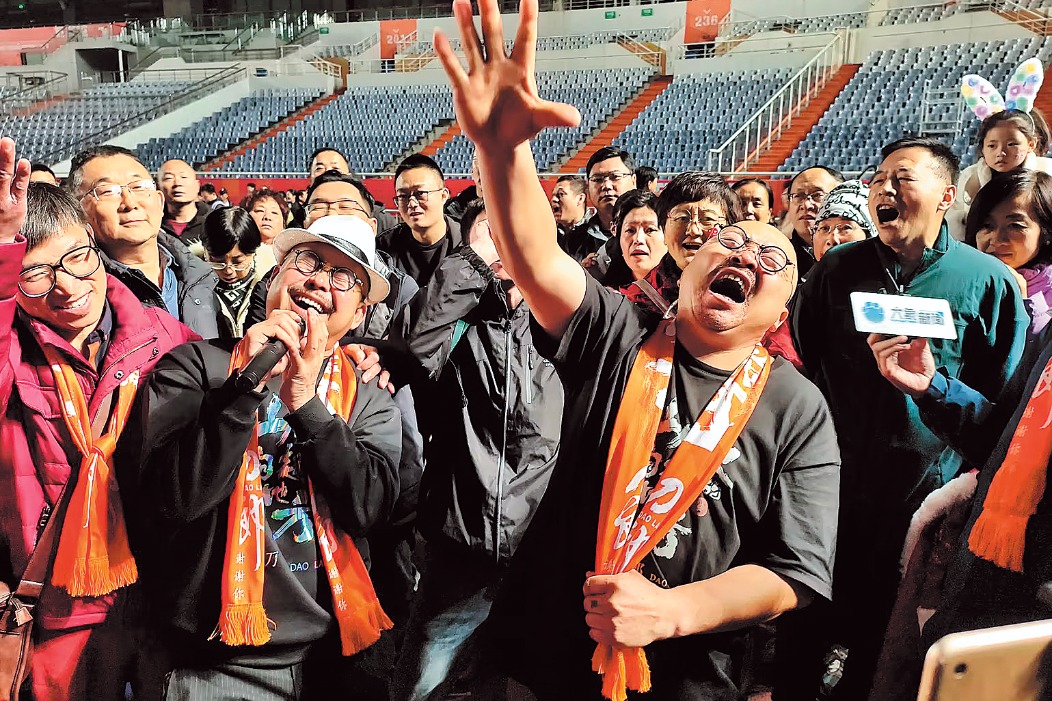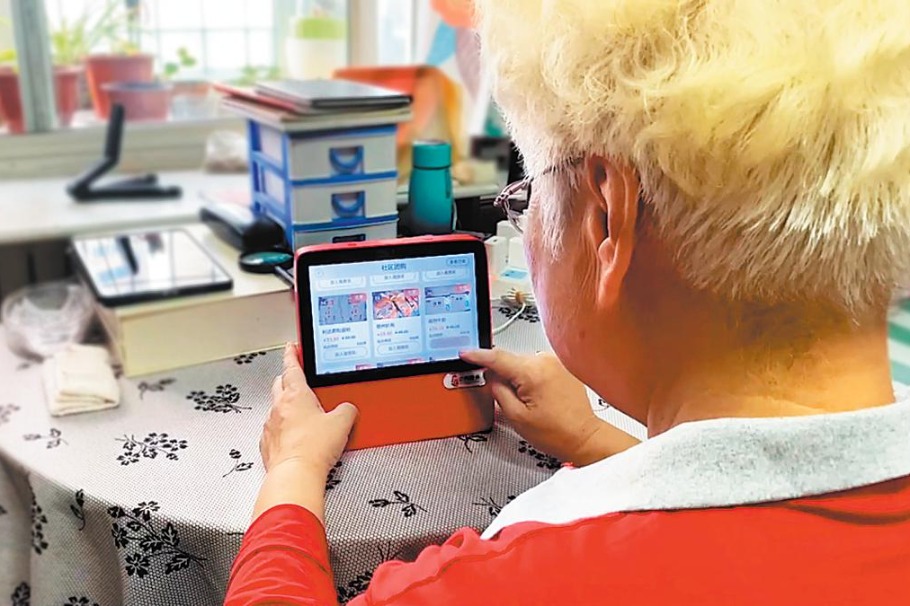Developing a pattern of prosperity
Businesswoman returns to her rural roots to help villagers boost their income by leveraging the local culture, Xing Wen reports.

Five years ago, it was a faint sense of nostalgia that led young businesswoman Shi Jia to pay a visit to her hometown in Huayuan county, Xiangxi Tujia and Miao autonomous prefecture, in Central China's Hunan province.
It was a strong sense of responsibility that made her stay and commit to boosting the income of her fellow villagers, especially local women from the Miao ethnic group.
She runs a company in Huayuan county, a predominantly Miao area, to carry on the group's traditional craft of embroidery. More than 1,200 mainly middle-aged local women have been trained by the company and furnished with the pertinent handicraft skills for free. Nearly 500 of them later got a job with the company.
Born into a business family, Shi was gifted with a sharp entrepreneurial brain.
Supported by her parents, back in the university years, she started to run businesses in sectors as diverse as hydropower and architecture.
"At that time, my motivation was to make a profit and then fritter away the money. I didn't have a grander plan," she recalls.
In 2017, her family which was based in Chengdu, Sichuan province, decided to go back to their hometown, Shilan township in Huayuan county, to visit their relatives.
Ma Zhengbin, then-director of the culture station in Shilan, turned to her, hoping that she could help boost the township's Miao embroidery production.
"Initially, I felt reluctant, because I was a layman who didn't really know much about the craft or the industry," Shi says.
However, her mother persuaded her to give it a try.
She decided to launch a Miao embroidery company where local women could learn the handicraft for free.
At its inauguration, more than 400 fellow villagers came to sign up as embroidery trainees.
Faced with the unexpected crowd, Shi was surprised.
"I didn't realize that so many villagers were desperate for a job," she says.
Shi's idea soon took on a more charitable orientation. Each trainee would get a subsidy of 5,400 yuan ($802) by attending the three-month training course.
Shi Yulan, a villager in Shilan, is among the beneficiaries.
Once a migrant worker, Shi Yulan returned home and joined Shi Jia's company to make embroidery works, through which she was able to juggle her job and family commitments.
"After work, I can take good care of the family and spend time with my children, giving them a happy childhood," says the mother.
"I feel satisfied," she says.
To delve into the Miao embroidery culture, Shi Jia and her team have visited museums and browsed ancient books to collect traditional patterns. Adaptations have been made to some of the traditional designs to add an innovative shine to cultural and creative products such as clothing, ornaments, suitcases and fans.
Shi Jia has also brought the local art form to international runways, promoting the traditional ethnic cultural products at overseas fashion events and in foreign markets. However, the production capacity of the traditional handicraft is relatively limited and fails to ensure a stable, consistent income growth for locals.
Therefore, Shi Jia plans to promote local employment and the rural economy through the integrated development of primary, secondary and tertiary industries.
She has invested in the development of rice cultivation, tea plantation and lobster farming in Huayuan.
An ongoing healthcare tourism project is another highlight in Shi Jia's business plan for the following five years.
She has mobilized her friends from Zhejiang province's Wenzhou city, which is hailed as the "shoe capital" of China, to launch a shoe factory in Huayuan county. The factory has employed around 200 local women and puts its annual output at more than 20 million yuan.
"The working hours for employees in the factory are flexible, enabling local farmers who are hired by the factory to work in their spare time," Shi Jia says.
This year, the county's tea plantation and production base have received overseas presale orders with a total value of $1 million. The buyers are mainly from Southeast Asian countries, according to Shi Jia.
"We can also promote Miao embroidery abroad by using artistic elements in the designs of the tea's packaging," she adds.
Getting along with her fellow villagers, Shi Jia has gradually learned more about their lives, and the struggles they endure, and is determined to help.
"I think I've found my life's mission here," she says.



Today's Top News
- Summit seen as opportunity to strengthen ties
- China leads boldly in global energy transition
- NHS doctors in England to strike over pay
- UK faces 3.6 percent rise in inflation in June
- Vice-premier to hold trade talks with US in Sweden
- Sovereignty over hydro project reaffirmed






























